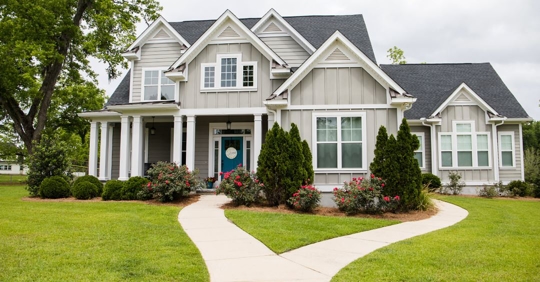Living in Myrtle Beach, South Carolina, means you’re no stranger to the potential risks associated with severe weather, such as hurricanes and floods. These natural disasters can cause significant damage to your home and leave you without power for days if not weeks. To keep your home and family safe, investing in a whole-home backup generator system is a smart decision. But, with so many options available, it can be challenging to know how to choose the best one for your needs. Let’s explore some important factors to consider when selecting a backup generator for your home.
Understanding whole-home backup generator sizing
Sizing is the first and most crucial consideration when selecting a whole-home backup generator. A generator that’s too small won't be able to power all your home's essential appliances and systems during a power outage, while one that’s too large can lead to unnecessary expenses. The size of your generator is determined by your home's total power requirements, which are calculated in kilowatts (kW).
- To determine your home's power requirements, start by making a list of all the appliances and systems you'll need to power during an outage. This list should include items like your air conditioning system, water heater, refrigerator, lights, and any medical equipment or other essential devices.
- Next, find the wattage of each appliance by checking the label or owner’s manual.
- Add up the wattage of all the appliances on your list to determine the total power required.
- Once you have your total power requirement, add an additional 25% to allow for startup surges and other factors.
This will give you the answer to the question, “what size backup generator do I need?” For example, if your total power requirement is 10,000 watts, you'll need a generator that is at least 12,500 watts.
How backup generators work
Backup generators work by converting fuel, usually natural gas or propane, into electricity. The generator is connected to your home's electrical system via a transfer switch, which allows it to detect when there is a power outage and automatically switch to generator power. When the generator starts, it uses its motor to turn a generator, which produces electricity. This electricity is then sent to your home's electrical panel, where it is distributed to your appliances and systems.
Related Content: Installing Outdoor Outlets
Choosing the best whole-home backup generator for your home
When selecting the best whole-home backup generator for your South Carolina home, there are several factors to consider beyond sizing. These include:
- Fuel Type: As mentioned, backup generators can run on natural gas or propane. Consider which fuel type is most accessible and cost-effective for you.
- Noise Level: Backup generators can be noisy, so choosing one with a low decibel rating is important.
- Brand Reputation: Look for a reputable brand with a track record of quality and reliability.
- Price: Backup generators can be a significant investment, so choose one that fits your budget while still meeting your power requirements.
- Installation Requirements: Backup generators require professional installation, so consider the installation process and any associated costs.

